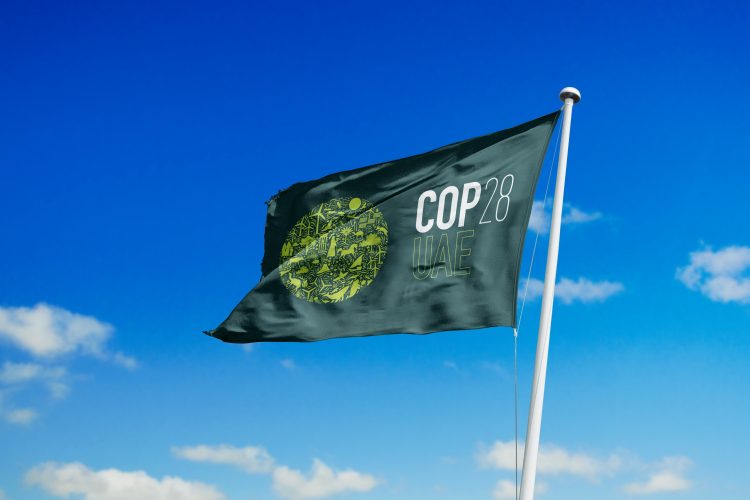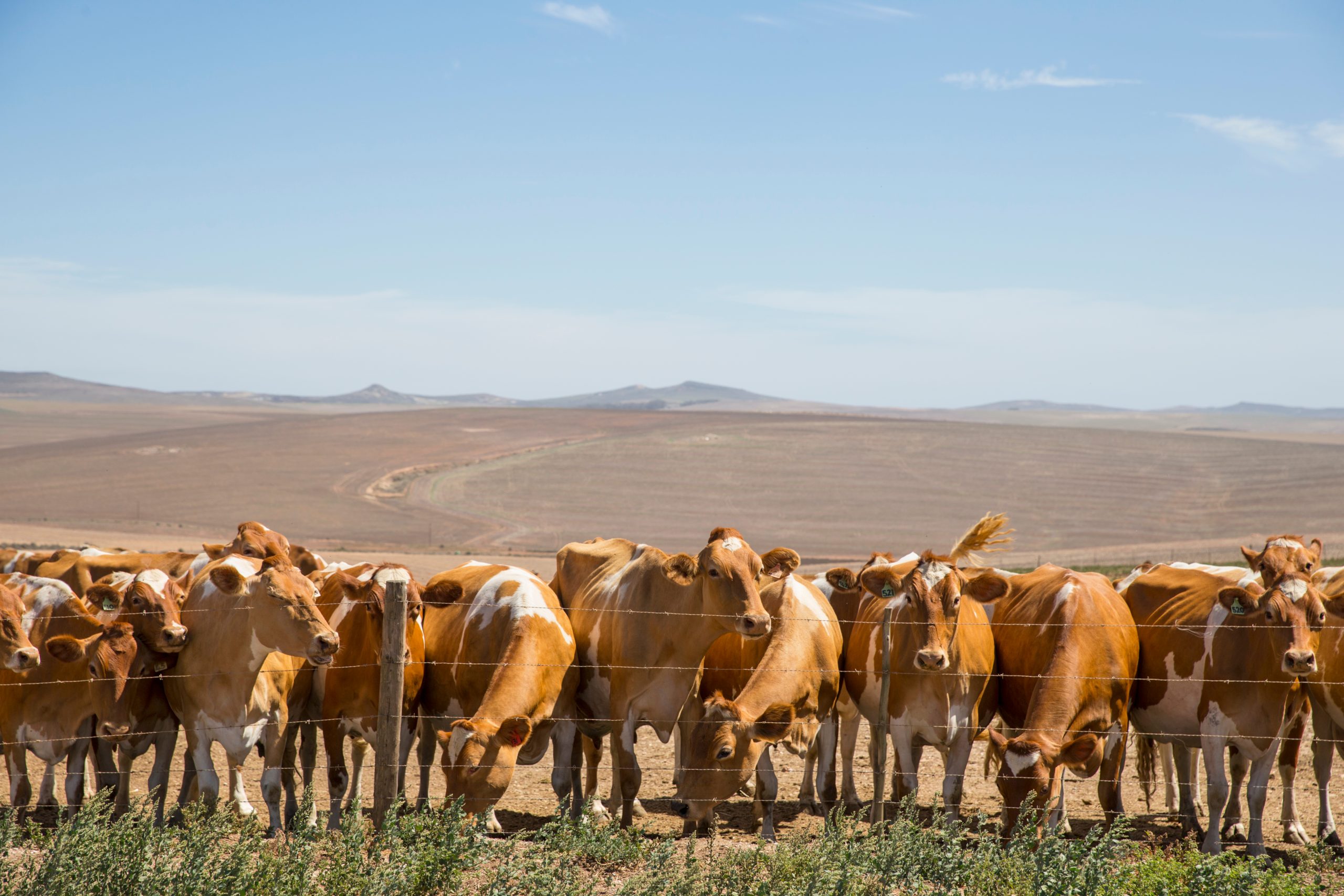The meat of the matter: how livestock fared at COP28
- Like
- Digg
- Del
- Tumblr
- VKontakte
- Buffer
- Love This
- Odnoklassniki
- Meneame
- Blogger
- Amazon
- Yahoo Mail
- Gmail
- AOL
- Newsvine
- HackerNews
- Evernote
- MySpace
- Mail.ru
- Viadeo
- Line
- Comments
- Yummly
- SMS
- Viber
- Telegram
- Subscribe
- Skype
- Facebook Messenger
- Kakao
- LiveJournal
- Yammer
- Edgar
- Fintel
- Mix
- Instapaper
- Copy Link
Posted: 11 December 2023 | Michael Victor | No comments yet
Michael Victor reveals the ways in which COP28 prioritised food and agriculture, highlighting crucial links between climate change, farming, and the need for nuanced solutions.


This year’s UN COP28 climate talks in Dubai were the first to make food and agriculture an explicit priority of the presidency. Not only did food, agriculture and water have a dedicated thematic day and several pavilions, but the summit opened with more than 130 countries signing up to the Emirates Declaration on Sustainable Agriculture, Resilient Food Systems and Climate Action.
The linkages between global food systems and climate change are becoming increasingly clear and urgent. Mounting evidence shows that the way countries produce, consume and dispose of food generates around a third of the greenhouse gas emissions that are driving up global temperatures. But more and more countries, especially those in the Global South, are also facing the reality that higher temperatures, erratic rainfall and climate extremes are in turn making farming increasingly difficult, threatening food security and livelihoods.
Governments therefore face the challenge of needing to rapidly reduce agricultural emissions while at the same time, ensuring that farmers can produce enough healthy, safe and affordable food to meet growing demand.
Animal agriculture plays a particularly significant role in the race to climate-resilient food systems. Globally, the livestock sector is estimated to be responsible for 14.5 percent of direct and indirect greenhouse gas emissions, 44 per cent of which are methane. But in regions such as Africa, livestock and animal-source foods have a lower environmental footprint and offer vital climate resilience to heat, drought and climate shocks, while also reducing nutrient deficiencies and rural poverty.


Vector highlights that in regions such as Africa, livestock and animal-source foods have a lower environmental footprint
After a slew of side events, panel discussions and sessions, it is clear that the climate debate must carefully nuance its position on animal agriculture to ensure that the vital benefits it offers, especially to developing countries, are not compromised in the race to Net Zero.
Food choice is a privilege
When it comes to production, consumption, nutrition and health, one thing is clear: the Global North and Global South food systems need climate funding for different solutions. This was the takeaway from The Great Food Debate: Let Them Talk, convened by the International Livestock Research Institute and ProVeg.
Actions towards developing more sustainable food systems must not leave behind the most vulnerable consumers. Climate action must therefore consider social justice. This includes children in the Global North who are being presented with unhealthy, processed foods as well as those in the Global South who are unable to access a balanced diet.
Reducing the overconsumption of meat in developed countries would both improve diets and reduce agricultural emissions. But in Africa, pastoralists play a vital role, producing half the continent’s meat and milk, a daily glass of which helps children develop both physically and cognitively.
Climate finance and policies must therefore take into account how best to support these different outcomes, from shifting diets in high-income countries to enabling pastoralists to adapt to climate change with innovations like index-based insurance and improved livestock feed.
Climate winners and losers
Within the question of climate justice is the question of dietary justice, and this raises the issue of power and voice.
In a session on achieving climate and nutrition goals through animal agriculture, Vivian Maduekeh from the Global Alliance of the Future of Food outlined six guiding principles to consider when debating the merits of plant-based diets versus animal-source foods. These included:
- Equity: who is this transition going to empower? The transition from livestock to plant-based should not empower corporations to the disadvantage of rural farmers. Those involved in the climate debate must be careful about the concentration of power and disparity in needs and empowerment
- Diversity and cultural appropriateness: it is vital to remember the importance of diversity in food and nutrition without giving priority to certain products that encourage the westernization of diets
- Health: how do we consider the diversity of health needs, safety, quantity versus quality and nutrition within planetary boundaries? As long as profits drive these transitions, there will always be the risk of unintended consequences and corporations should be expected to pay for negative impacts
- Interconnectedness: how do we take a food systems approach and understand the trade-offs and synergies?
- Renewability: how do we shift consumption and diets to be sustainable? This should involve encouraging diverse farming systems over monoculture
- Resilience:how can governments and non-profits help make communities resilient in the climate crisis and encourage localized value chains over globalised supply chains.
Putting farmers first
Discussions about transforming food systems for a climate crisis often omit those on the frontline. Farmers are responsible for implementing the practical changes discussed at events like COP28 that will improve the sustainability of agriculture.
But farmers are also contending with evolving and increasingly unpredictable conditions, especially those in regions hardest hit by climate change. More than 13 million livestock have died during the ongoing and unprecedented drought across the Horn of Africa. It can take up to five years for farmers to recover from these losses if at all, according to UN reports.
A session on putting farmers first highlighted how existing adaptation efforts and support fall short. With escalating climate risks, urgent action is needed to expedite financing and implement climate change actions in agri-food and livestock systems, both to reduce emissions and ensure food and nutrition security.
The voice of Africa: a new narrative for livestock on the continent
The conversation around livestock systems remains polarized and lacks nuance. This is particularly true when talking about livestock systems in Africa. Livestock production plays a critical role in livelihoods, nutrition and climate adaptation across diverse production systems in Africa, and has the potential to contribute to achieving the Sustainable Development Goals and Africa’s Agenda 2063 Developmental Goals. This is quite different from how livestock systems are perceived and managed in the Global North.
The prevailing “meat and milk are bad” narrative frequently lumps livestock farmers in the developing world – most of whom practice low-input systems of production – with industrial and highly intensive farming systems in the Global North.
The session on Creating a New Livestock Narrative for Africa: the Role of Resilience in Livestock Systems highlighted the critical role of livestock in Africa’s livelihoods, nutrition, and its capacity for climate change adaptation. It described how sustainable livestock production practices can assist African countries in achieving their developmental goals while adhering to environmental limits.
George Wamukoya, Director of the African Groups of Negotiators Expert Support (AGNES), outlined how this narrative has muddled negotiators’ ability to talk about livestock in Africa. “In the negotiations, it became clear that many don;t understand livestock in Africa,” he said. “In Africa, livestock is tied to livelihood, culture and many things.”
One message was clear above all others at the climate talks: the challenges of food security and climate change are inextricably linked. The world cannot rein in climate change without transforming food systems, but in doing so, governments must also safeguard food, nutrition and economic security for farmers and consumers around the world. Solving this dilemma is essential to the future of the planet and the entire population.
About the author


Related topics
Food Security, Regulation & Legislation, Supply chain, Sustainability, Traceability, Trade & Economy, World Food
Related organisations
Global Alliance of the Future of Food, International Livestock Research Institute, International Livestock Research Institute (ILRI), ProVeg









